Best nylon guitar strings: Find the right set for classical, hybrid, and flamenco players
We’ve got 10 of the best options from D’Addario, La Bella and more to help you get the most out of your nylon-stringed guitar

Want all the hottest music and gear news, reviews, deals, features and more, direct to your inbox? Sign up here.
You are now subscribed
Your newsletter sign-up was successful
Nylon-stringed guitars are a great choice for people who want to play softer, more romantic music, such as classical or flamenco. They’re also ideal for beginners, since the strings tend to be gentler on the fingertips. Speaking of strings, you don’t have to stick with the ones your chosen guitar comes with – there are lots of varieties out there, each with its own set of benefits. To help you choose the right set for you, we’ve put together a guide to the best nylon guitar strings.
The following guide features options from all the top guitar-string manufacturers, including D’Addario, Savarez and Augustine, and also caters for a range of budgets.
Before making your choice, why not take a look at our buying advice further down the page…
- Best classical guitars: nylon-string guitars for all budgets
- Best acoustic guitar strings: get the best from your guitar
Best nylon guitar strings: Our top picks
D’Addario’s position as a market leader in all categories of guitar-string manufacturing speaks volumes about the innovative processes the New York company has developed over the years. For price and performance, not to mention availability, its Pro-Arté range is the best in the business. The Nylon set that sits at the top of our list comprises nylon-core bass strings wrapped in silver-plated copper, along with nylon monofilament trebles – and they feel and sound fantastic.
Savarez is another globally esteemed string manufacturer, and its Alliance HT Classic High Tension 540J set offers a bright, punchy treble response that’s ideal for live performance, when you need a little more detail in the upper registers. They represent excellent value for money, too.
Best nylon guitar strings: Product guide
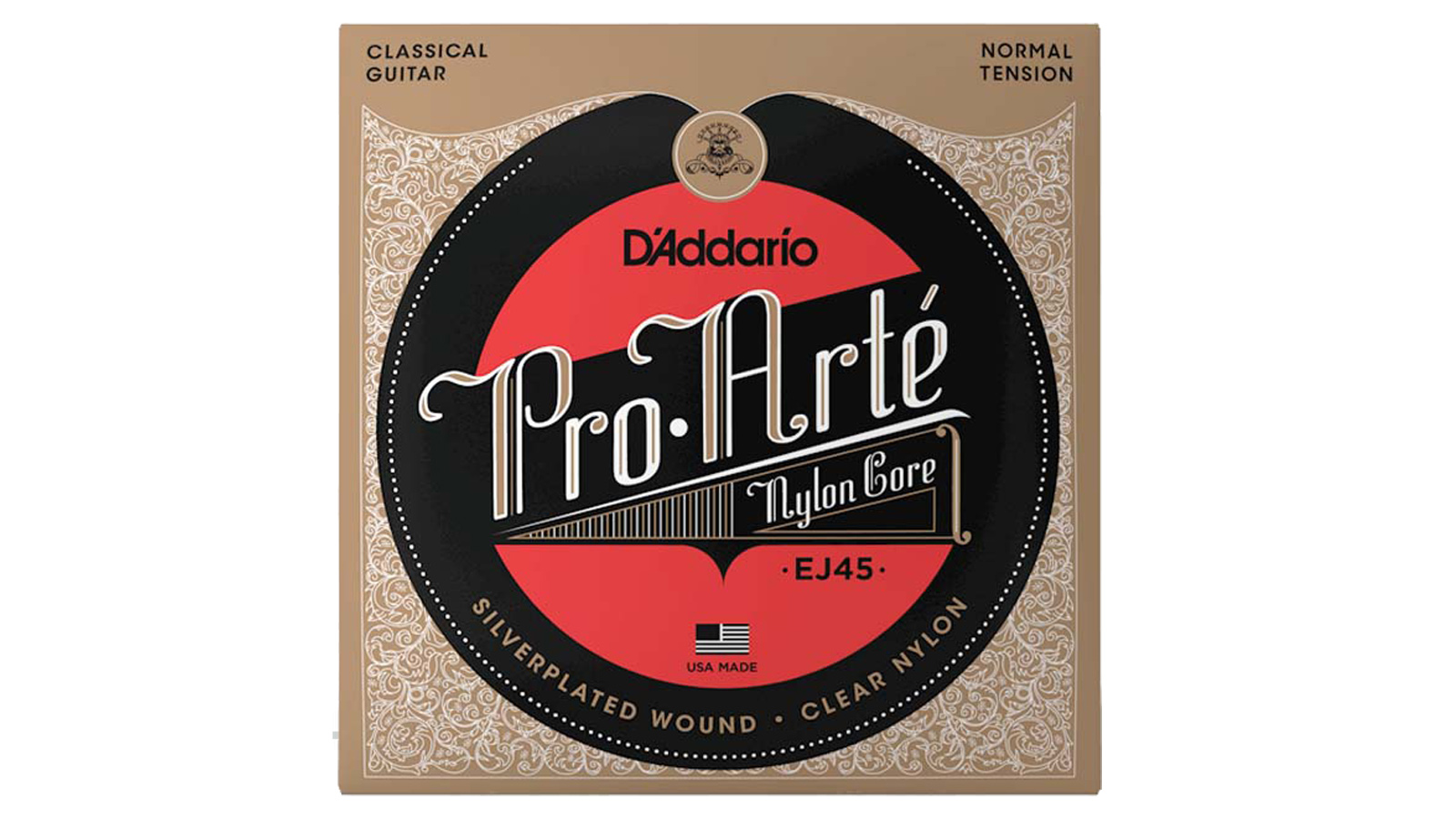
1. D’Addario Pro-Arté Nylon
Our expert review:
Specifications
Reasons to buy
Reasons to avoid
There’s a reason why D’Addario is such a ubiquitous presence in the guitar strings industry – it offers high-quality products at a fantastic price. Its Pro-Arté series features a number of different string options, but for warmth and clarity it’s hard to beat the Nylon set.
Wrapped in silver-plated copper, the bass strings feel good under the fingers, while the trebles are laser-machined for consistent intonation and performance. There are various different tensions in the range, too.
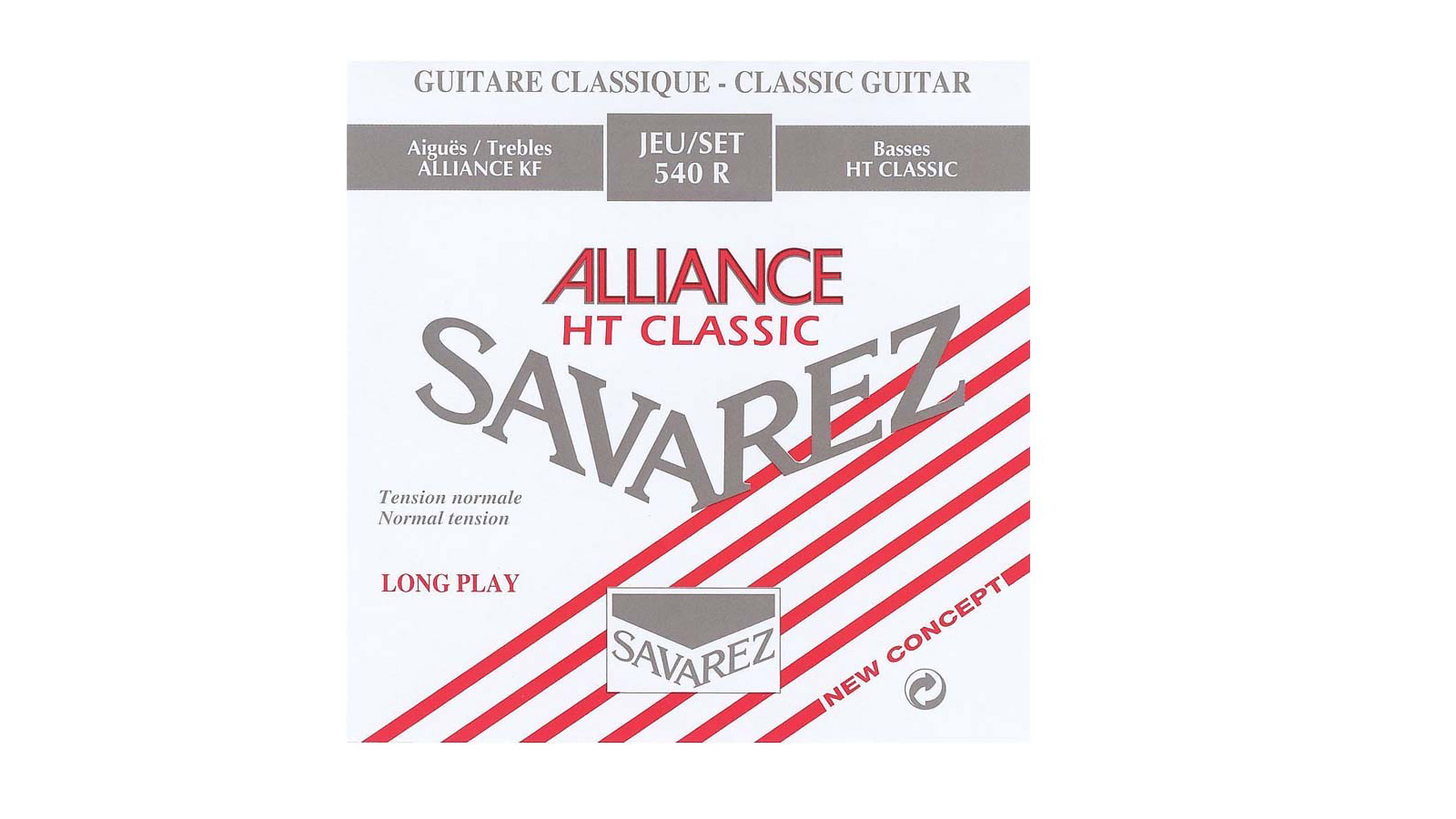
2. Savarez Alliance HT Classic High Tension 540J
Our expert review:
Specifications
Reasons to buy
Reasons to avoid
The fluorocarbon trebles in this mid-priced set offer an exceptionally bright tone, along with a fast attack – just the thing for presenting your music on a live stage. Some might find them a little harsh, but if you’re playing in a large venue, they’ll get their point across where pure nylon might sound a little polite.
These strings perform well in the recording studio, too, with minimal squeak as you move your hand across the fingerboard.
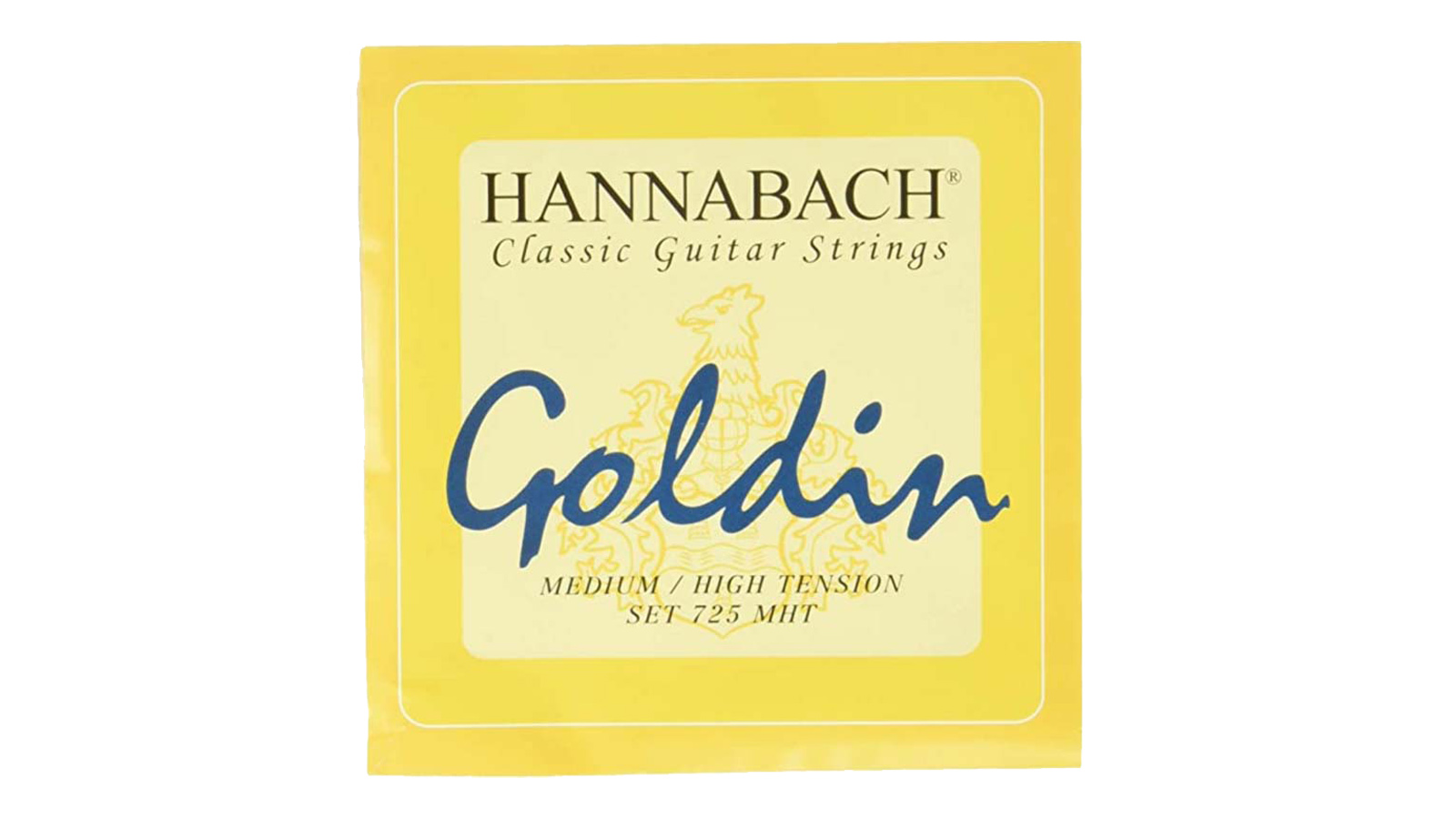
3. Hannabach Goldin 725MHT
Our expert review:
Specifications
Reasons to buy
Reasons to avoid
Played by the likes of Alexandre Bernoud and Damon Buxton, Hannabach strings are ideal for those occasions when you have to squeeze into a tux and perform under a spotlight. Its Goldin 725MHT set takes its name from the gold alloy wrap that makes the bass strings come alive under the fingers.
Bright and forthright, they’ll reward the touch of an expert player. They’re not cheap, but pros and serious amateurs playing a high-end classical guitar won’t begrudge their instrument, or their audience.
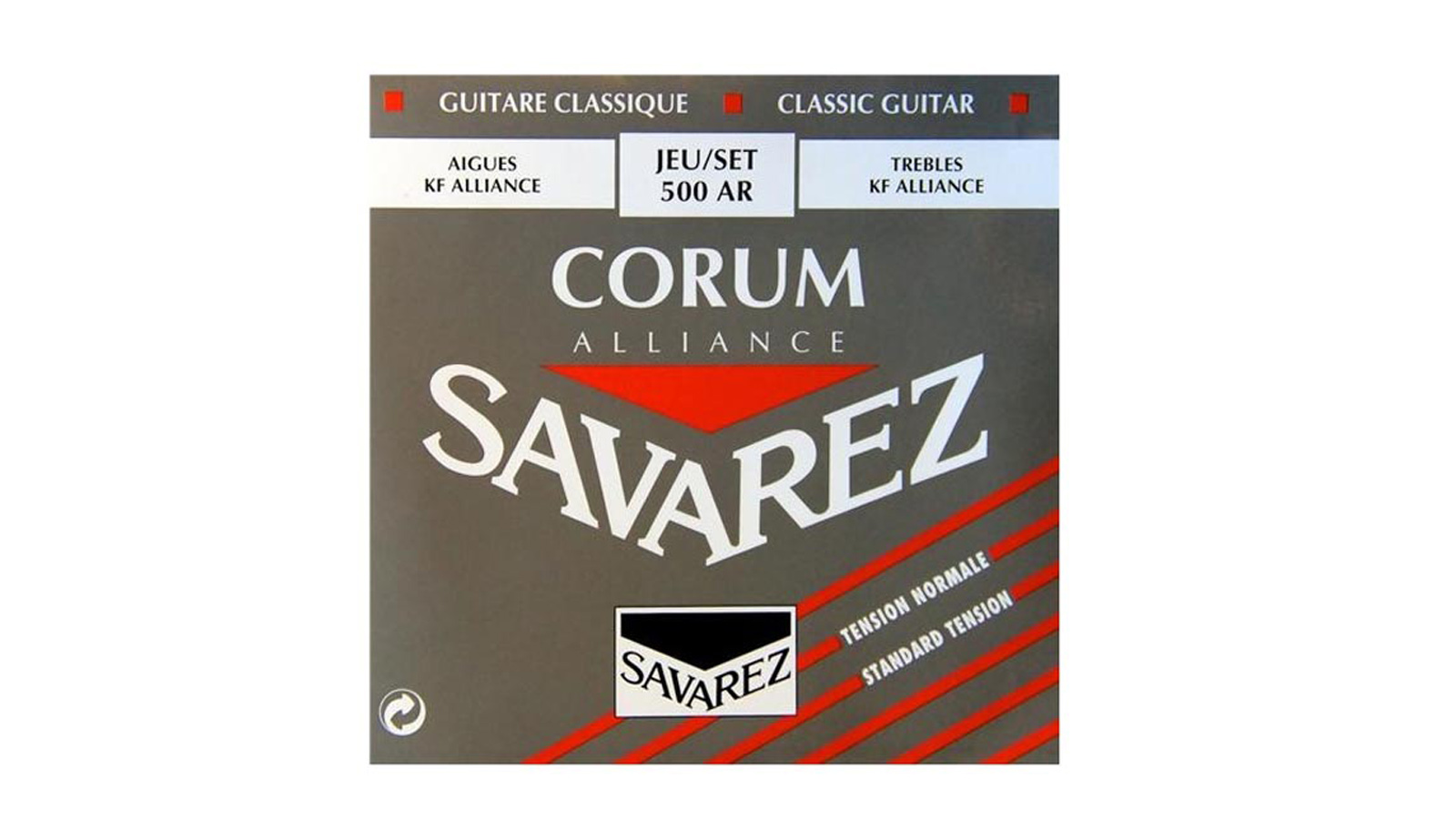
4. Savarez Corum Alliance 500ARJ
Our expert review:
Specifications
Reasons to buy
Reasons to avoid
Matching Savarez’s more-malleable Corum bass strings with its Alliance fluorocarbon trebles, this set is very comfortable. Those players moving over from steel will find it especially satisfying, as the thinner gauge of the trebles will feel that bit more familiar. The set sounds great, too, with the bass strings wound to offer a level of detail you’d perhaps expect of stiffer strings.
All in all, the 500ARJs make for a well-balanced solution that would otherwise only have been possible through mixing and matching two different string sets.
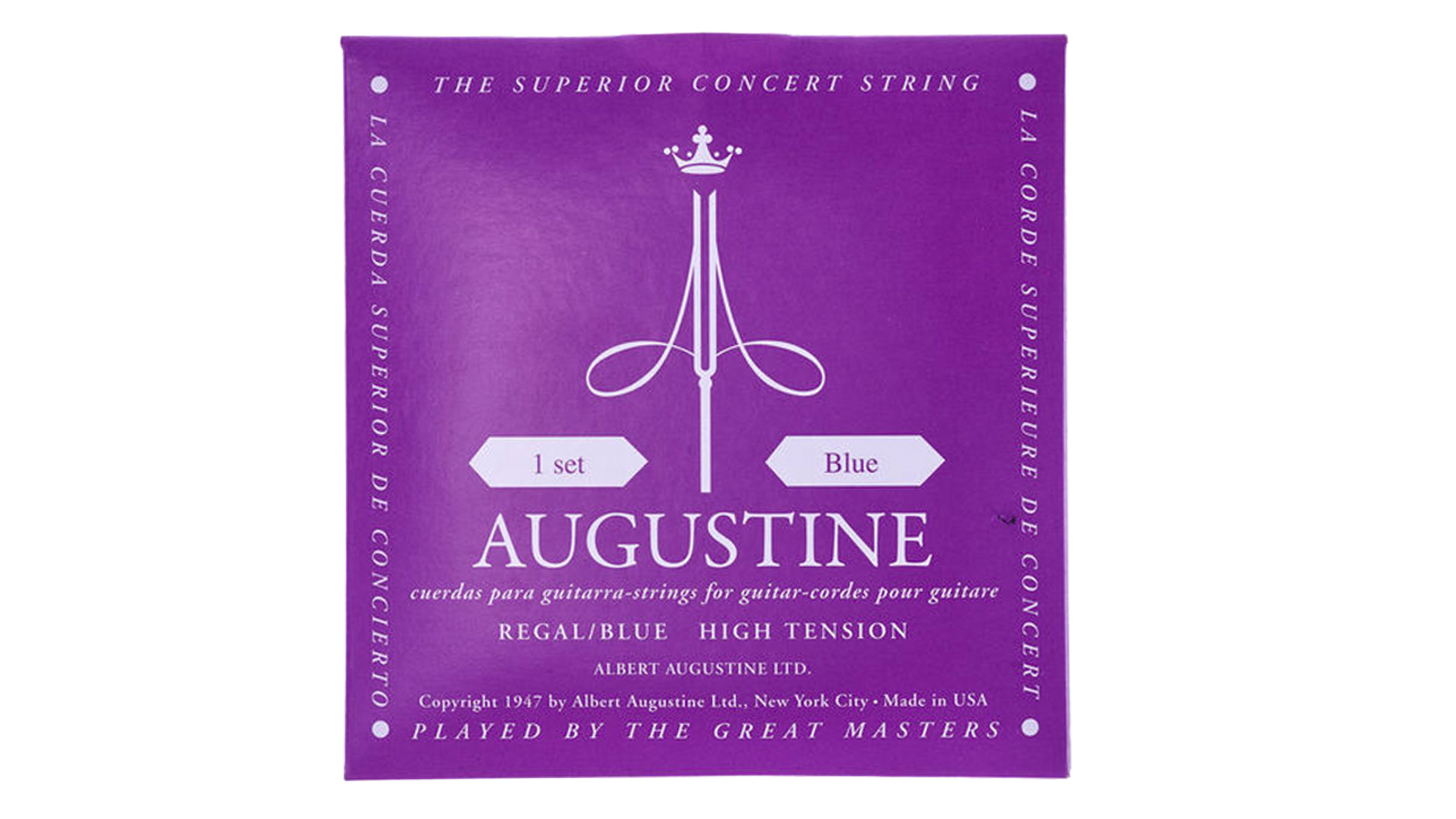
5. Augustine Regals
Our expert review:
Specifications
Reasons to buy
Reasons to avoid
Played by the likes of João Camarero and Lily Afshar, Augustine’s Regals are the true blue-bloods of the affordable classical strings market. Here you have silver-plated bass strings and plain old nylon trebles, but the performance is supreme. While nylon guitar strings have a reputation for subtlety, on the right guitar these really let the notes pop off the fretboard.
At this price, it would be hard to find anything better for a classic old-school sound, with body and substance across the frequency spectrum, and up-and-at-’em projection.
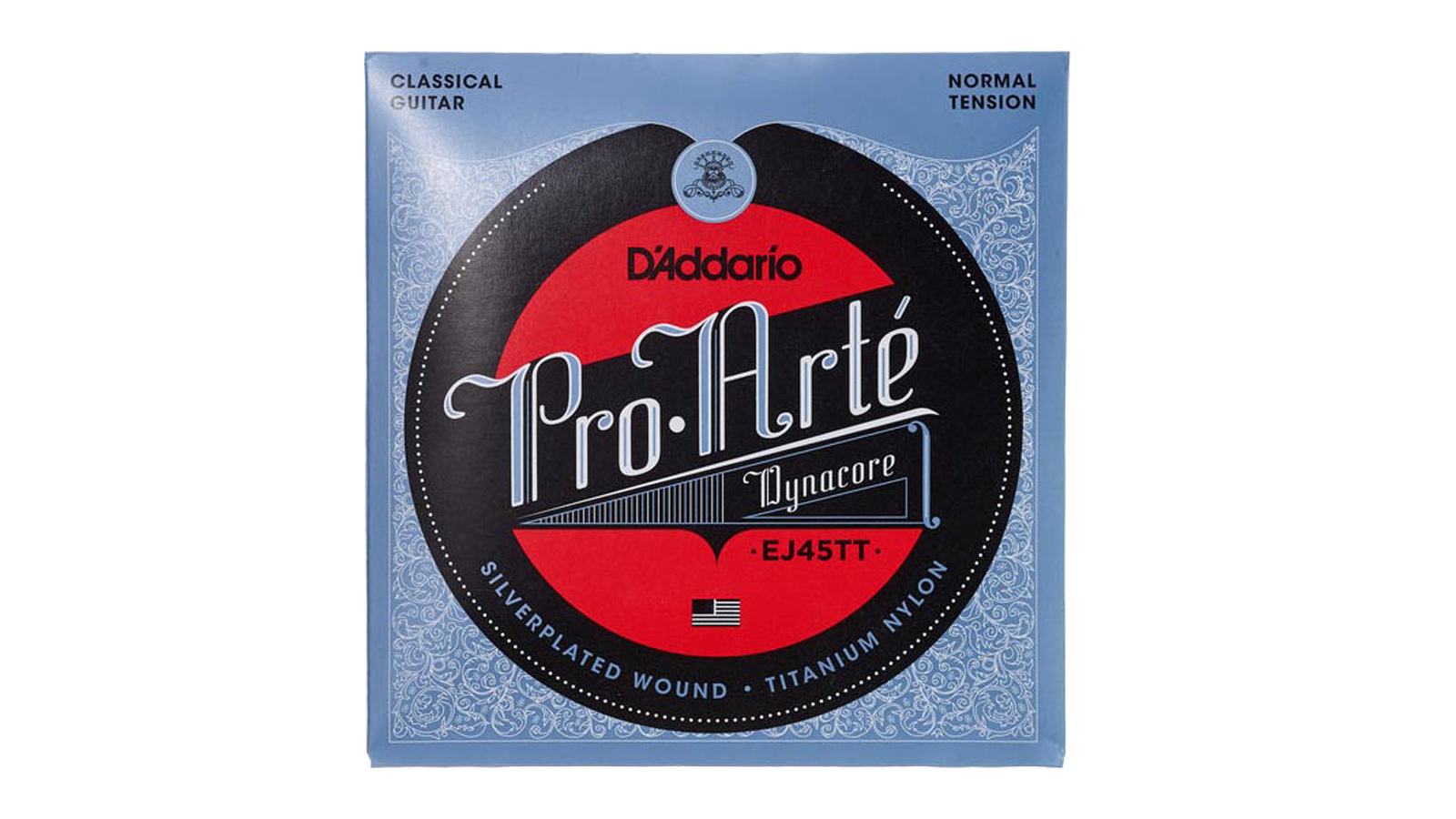
6. D’Addario Pro-Arté Dynacore
Our expert review:
Specifications
Reasons to buy
Reasons to avoid
Titanium nylon strings might be the answer if you’ve been alternating between nylon and carbon trebles, and haven’t quite found the sweet spot. The Pro-Arté Dynacore bass strings have a blended polymer core and are wound in silver-plated copper. But it’s the titanium nylon of the trebles (laser-machined, of course) that’s the USP here.
Since they’re brighter than plain nylon, many find them easier to intonate. They’re a doddle to manipulate, too, and that clarity will help to accentuate your vibrato.
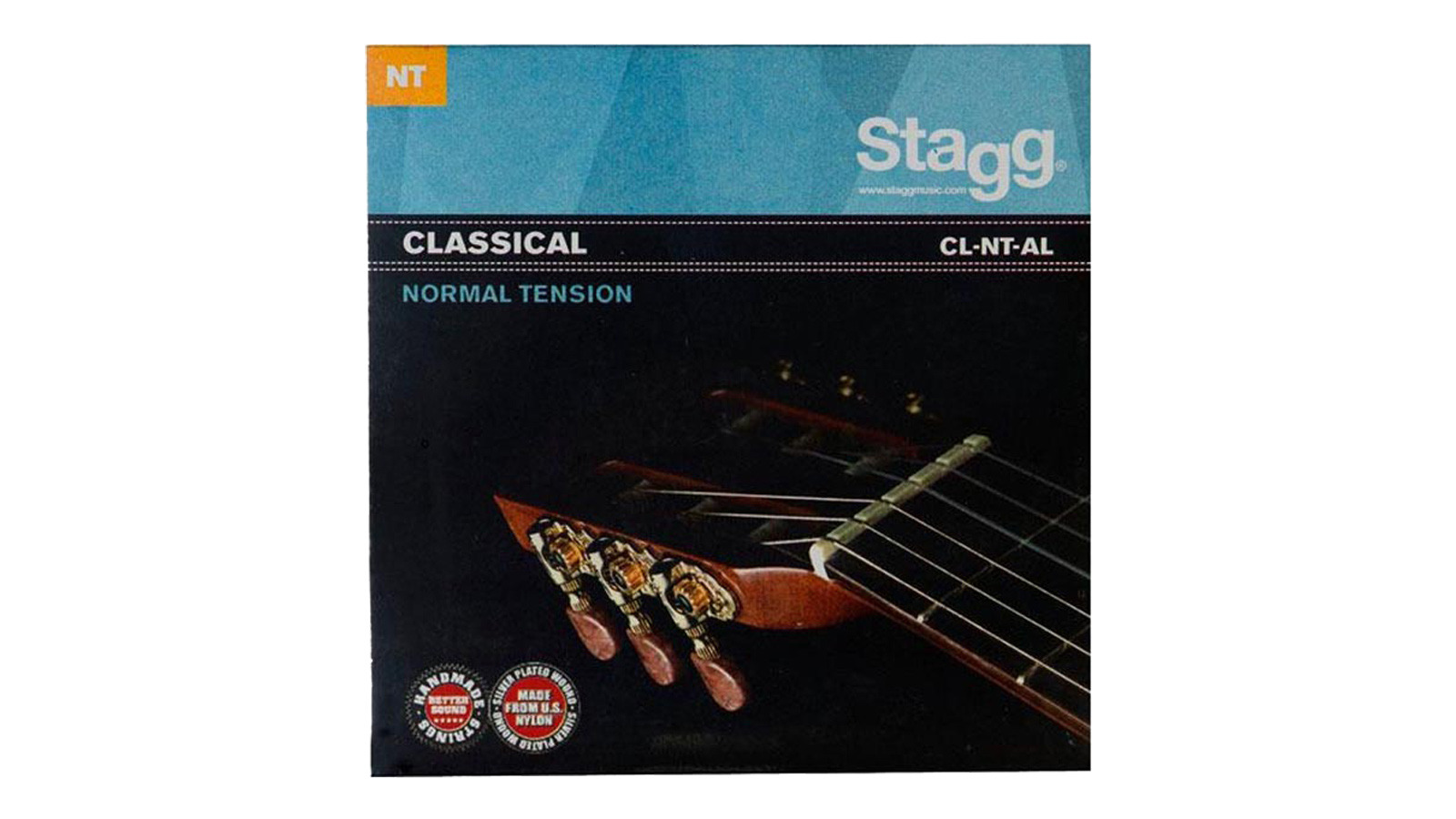
7. Stagg Classical
Our expert review:
Specifications
Reasons to buy
Reasons to avoid
If you’re just starting out or want to stick a set of strings on a budget classical guitar to see how it sounds, Stagg’s cheap-as-chips Classical set won’t disappoint.
There’s nothing fancy in the build, but the results are deeply satisfying. You’ll find clear nylon trebles that strike a nice balance between warmth and lucidity, along with silver-plated bass strings that let the notes bloom.
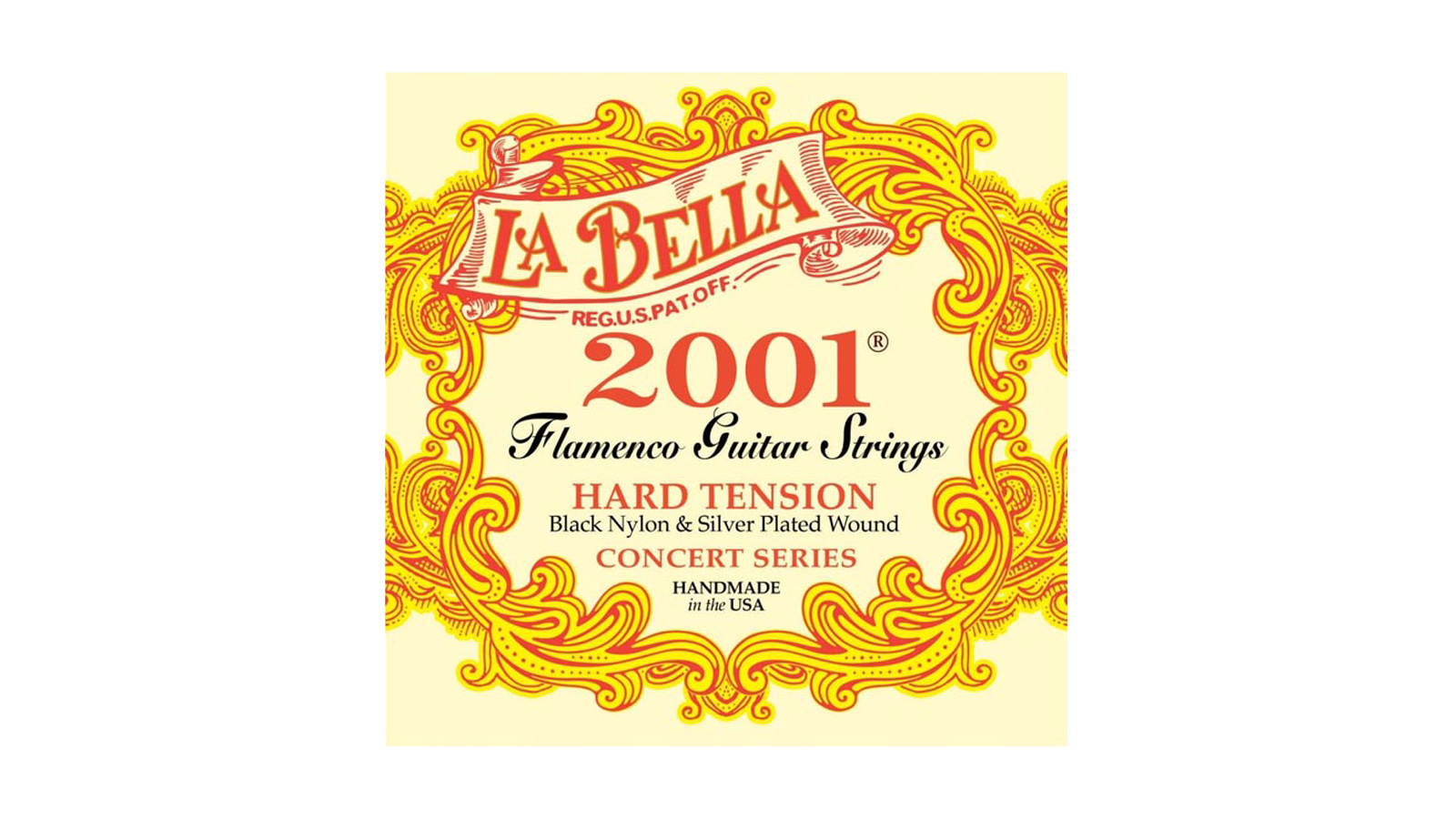
8. La Bella 2001 Flamenco Guitar Strings
Our expert review:
Specifications
Reasons to buy
Reasons to avoid
La Bella offers a couple of black-nylon options, with the main difference between the Flamenco and Folk Singer sets being the latter’s gold-plated windings on the bass strings. In the Flamenco set, the Flamenca Negra treble strings should give your rumba strumming a three-dimensional quality.
What makes black nylon a good choice for both flamenco and folk is that, typically, the guitar will be complementing the human voice, and strumming is inherent to both styles. Hard-tension options will bring that fast attack and treble response you need, and will stand up to aggressive playing styles.
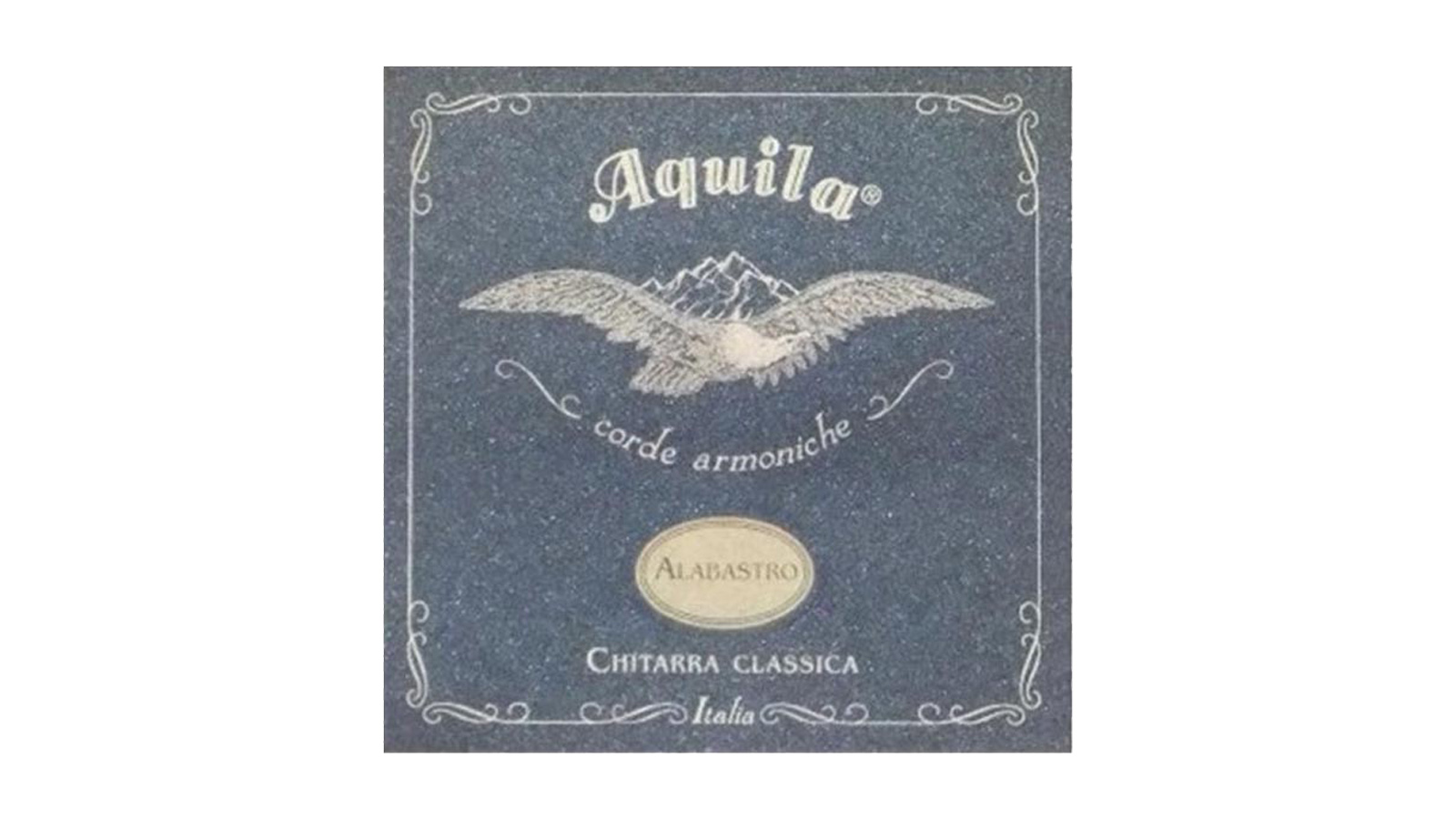
9. Aquila 19C Alabastro
Our expert review:
Specifications
Reasons to buy
Reasons to avoid
The pre-war classical guitar tone was all but defined by gut strings – they had a bright frequency profile and a fast attack. But in the modern era, not everyone has the stomach for them when there are so many nylon alternatives.
Aquila has combined the best of both worlds with its Super Nylgut polymer trebles. They improve on the original gut-string builds, too, with the polymer being more consistent and longer-lasting, and suffering from fewer intonation issues.
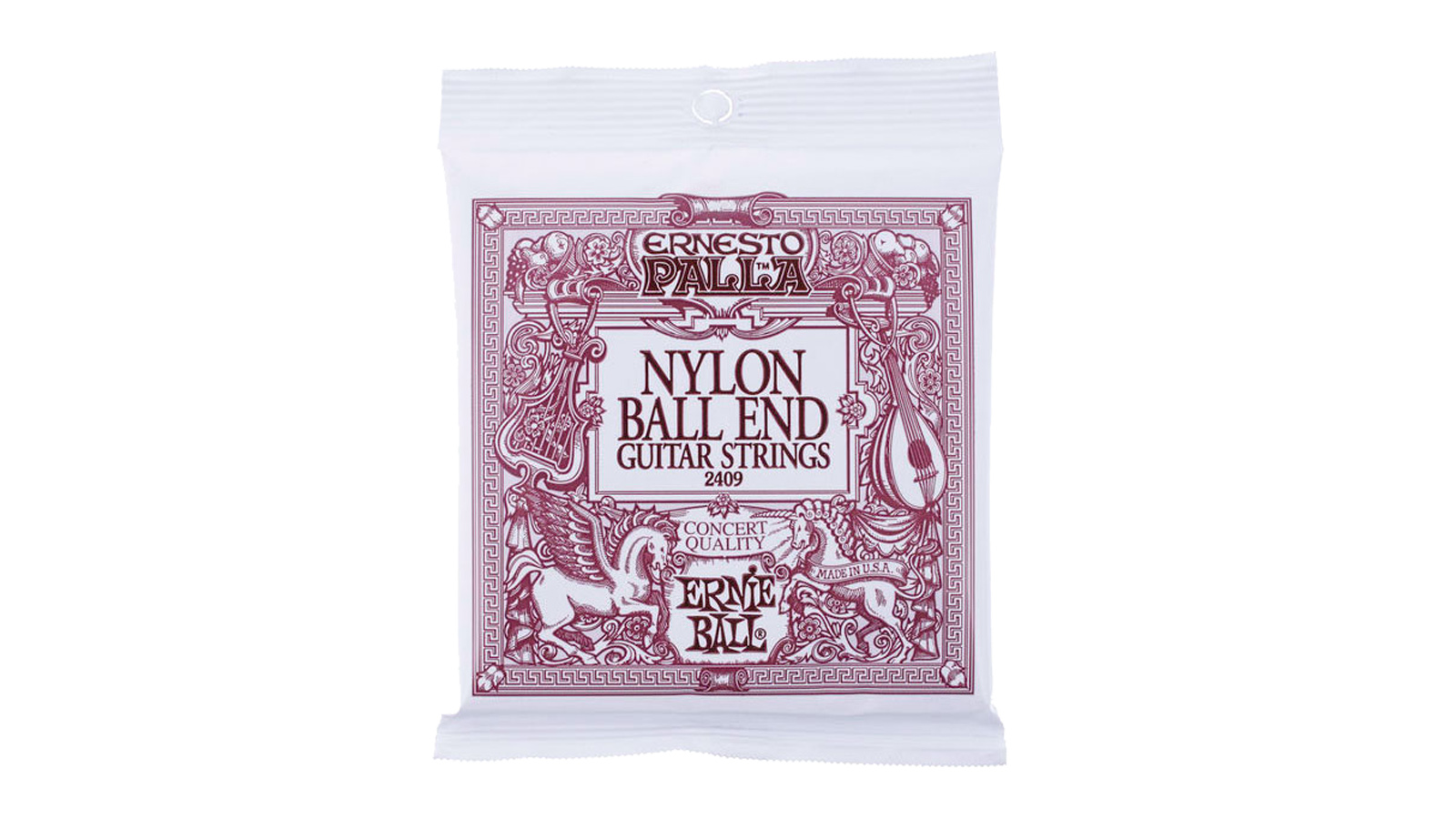
10. Ernie Ball Ernesto Palla Clear & Silver Nylon Classical Guitar Strings
Our expert review:
Specifications
Reasons to buy
Reasons to avoid
Ball-end strings are something of an outlier in classical guitar, where most string sets are tie-on affairs. There are some hybrid guitars that will take ball-end sets, though, and for beginners this quick and easy way to attach strings makes a lot of sense.
The silver-plated copper bass strings and clear nylon trebles in this Ernie Ball set are an excellent choice for fingerstyle folk music. And the price is very approachable indeed.
Best nylon guitar strings: Buying advice
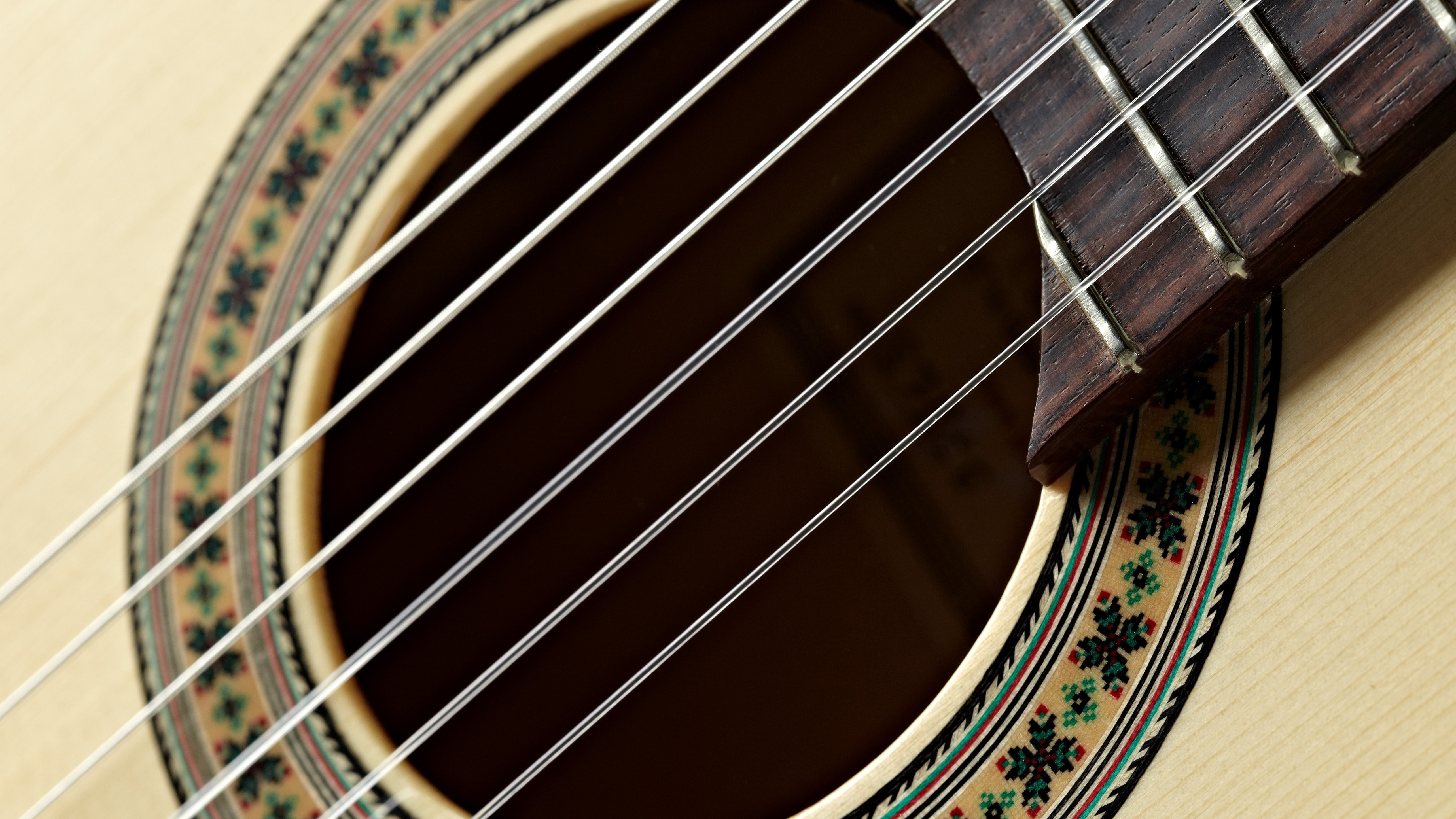
How to choose the best nylon guitar strings for you
MusicRadar's got your back
Nylon guitar strings came to fruition during the industrial boom of the post-war period, when cat-gut strings – typically made from cattle intestines – were supplanted by a far more appealing synthetic material. Albert Augustine Ltd (now known as Augustine) was the first company to offer this vegan-friendly alternative, developing nylon strings in collaboration with the great Spanish guitarist Andrés Segovia.
Until this point, the treble strings found on classical and flamenco guitars had been made of pure gut, with the bass strings comprising a silk-wound core. The new style would see three plain nylon treble strings complemented by three wound bass strings, typically wrapped with a metal alloy.
Nylon string tension
Today, the best nylon guitar strings are arranged into three categories. Whereas acoustic steel strings are ordered by gauge, or string thickness, nylon strings are ordered by tension: low (light), medium (normal) or high (hard, strong or forte). Low-tension strings tend to have the quietest sound, and you might get a little more fret buzz when using them – but there are benefits. They are easy to manipulate, and while all nylon strings are kinder to inexperienced players’ fingers than steel ones, low-tension strings are particularly approachable. They are also a little kinder to vintage instruments, particularly those without a truss rod.
High-tension strings usually have the loudest sound. Where low-tension strings almost pull your ear in towards them, here the attack is a little more upfront. Those who play with a guitar pick might enjoy the resistance, and if you’re using a hybrid nylon-stringed guitar with an adjustable truss rod, a high-tension string set could give you the sound you’re looking for.
As you might expect, medium-tension strings sit somewhere between the two. For the uninitiated, these are as good a place to start as any. But with some brands offering mixed-tension sets, plus extra-hard and extra-light sets, there’s plenty of opportunity to experiment.
While your instrument might have its own quirks that influence your choice of string, so too will your playing style, and how the strings feel and sound to you is the most important thing. This, after all, is about the business of playing music, and there is no received wisdom that overrules what your hand and ear are telling you.
What are nylon strings made of?
As for materials, there’s some variance here. The three bass strings (low E, A and D) generally have a similar construction to their steel-stringed counterparts, in that they’ll comprise a metal wrap around a core material. With nylon guitar strings, that core will be multifilament nylon or a composite material, and they’ll feel a little softer on the fingers than steel strings, where both wrap and core are metal.
Bronze-coated strings feature an 80/20 copper/zinc coating, and have a little more brassiness. They sustain well, too, though that’s not for every player. The alternative, silver-plated copper windings, tame some of that high-end, giving you a warmer, more-rounded tone that might well complement the unwrapped treble strings (G, B and E).
Nylon, or clear nylon, is the most common choice for treble strings. It feels good under the fingers and offers a nice balance tonally. If you find nylon too brash, you could try black nylon.
There may be occasions when you need something less mellow. You might want a little extra oomph in the upper mids and more detail in the treble. Here you have a few options. Carbon strings have fluorocarbon trebles that offer a louder performance, with an abundance of detail. All good? Sure, but some people find carbons to be a little harsh and lacking warmth. It’s a matter of taste, but might also depend on the guitar. If yours is naturally a little dark, a set of carbons might make it shine.
Titanium is a variation on the carbon theme. There’s no titanium in these strings – the name refers to the metallic grey colour of the newfangled polymer that’s used to create them. In terms of sound, they’re bright and engineered to project your tone. Again, they can really come into their own when used on a dark-sounding guitar or for unaccompanied recitals where you really want some get-up-and-go in those upper registers.
How we chose the best nylon guitar strings for this guide
Here at MusicRadar, we are experts in our field, with many years of playing, creating and product testing between us. We live and breathe everything music gear related, and we draw on this knowledge and experience of using products in live, recording and rehearsal scenarios when selecting the products for our guides.
When choosing what we believe to be the best nylon guitar strings available right now, we combine our hands-on experience, user reviews and testimonies and engage in lengthy discussions with our editorial colleagues to reach a consensus about the top products in any given category.
First and foremost, we are musicians, and we want other players to find the right product for them. So we take into careful consideration everything from budget to feature set, ease of use and durability to come up with a list of what we can safely say are the best nylon guitar strings on the market right now.
Find out more about how we test music gear and services at MusicRadar.
Find the right strings for you
- Best guitar strings: a beginner’s guide
- The best electric guitar strings on the planet right now
- The best ukulele strings for beginners to pros
- Best bass strings: vintage and modern sets for every style and budget
Want all the hottest music and gear news, reviews, deals, features and more, direct to your inbox? Sign up here.
Jonathan Horsley has been writing about guitars and guitar culture since 2005, playing them since 1990, and regularly contributes to MusicRadar, Total Guitar and Guitar World. He uses Jazz III nylon picks, 10s during the week, 9s at the weekend, and shamefully still struggles with rhythm figure one of Van Halen’s Panama.
